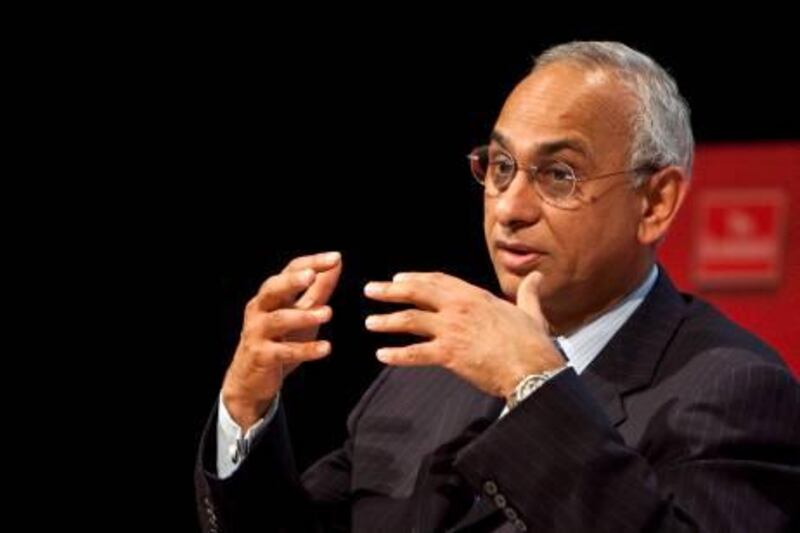Many UAE companies are paying more interest than they need to because they are not transparent about their accounts, according to the head of one of the world's leading credit rating agencies.
Companies gained cheap credit during the boom years, but credit rating agencies soon questioned their ability to repay those debts as the downturn took hold. This led firms such as Dubai Holding Commercial Operations Group, Taqa and Emirates NBD to request that their ratings be withdrawn, saying the assessments did not accurately reflect their creditworthiness.
Deven Sharma, the president of Standard and Poor's (S&P), said companies that shun ratings agencies may pay the price in their ability to raise capital from investors.
"The question is what pricing are they getting? Are they getting what they could be with more transparency? That's the fundamental question, and that's the role we play."
Ratings agencies have seen their reputation tarnished by the financial crisis, when they assigned the highest ratings to thousands of property-related financial instruments known as collateralised debt obligations that turned out to be flawed.
Agencies have learnt their lessons from the crisis and the ensuing losses incurred by banks worldwide, Mr Sharma said.
"We do have to earn credibility back from investors and others who use the ratings," he said.
Jan Willem Plantagie, the regional managing director for S&P, insisted the agency made the right call on many Dubai companies that were downgraded to junk status.
S&P pulled its ratings on Dubai Holding in January, citing a lack of transparency and lack of clarity about the Government's support for the group. Dubai Holding has since announced it is in talks with creditor banks to restructure its debt, and has received a US$2 billion (Dh7.34bn) injection from the Dubai Government.
Mr Plantagie defended the agency's decision: "I think the view on Dubai Holding was forward-looking, because six months later it went into a debt restructuring. I wouldn't say we were right in the end and they were wrong, but we have to call these risks."
He said the analysis of credit for UAE companies was often made more difficult because government support was not enshrined in law.
Philip Smith, a senior director at Fitch Ratings, said the withdrawal of a rating draws attention to the company. "Withdrawing a rating just increases the visibility and attracts attention to the downgrade," he said.
David Staples, a managing director at Moody's in London, said previously unrated companies were seeking assessments to broaden their choice of borrowing.
Companies that disclose financial information are often more attractive to investors, said Karim Khadr, the head of research at Alembic Securities. "We're seeing more and more conference calls. More Gulf companies are travelling to see investors and this is a natural development for an equity market," he said.
"Now it's a regular thing, not just among large-cap companies but mid-caps too."
One banker at a corporate banking division of a UAE bank said the absence of a credit rating had a big impact on the "comfort level" around an investment.
"In the UAE, it's a little more open than in Saudi Arabia," he said. "But I think the bigger problem is that I don't know if a lot of companies would like to be rated or not."
He said that to feel truly comfortable with an investment, it should have a rating from any one of the three agencies. However, he added: "With the ratings fiasco in the US, it's not like you can close your eyes to everything if you have a ratings agency."





